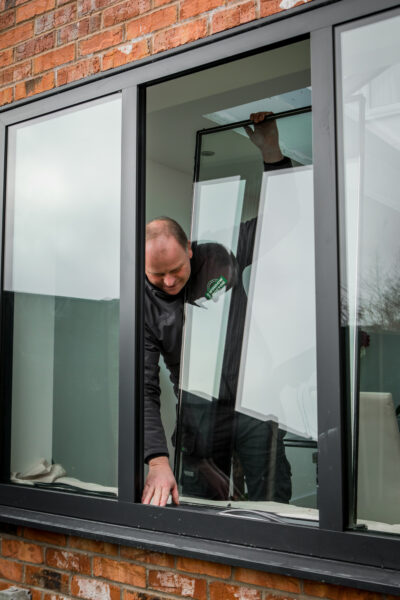
It's that time of year, when you wake up in the morning, look at your windows and wonder why they’re misty!! Although it’s not as cold in homes as it used to be, condensation is still not nice to live with. It spoils the look, creates damp pools on window sills and potentially causes mould if the window condensation doesn’t dry quickly enough. It also affects the temperature of the room as the coldness emanates from the window. Whatever the reason for it, nobody wants it. To prevent it from happening, you first of all need to understand where it’s coming from.
Condensation is caused by moisture that is formed when an object is cooler than the air around it.
Condensation is reduced in double-glazed windows because there is a thermal barrier between the 2 panes. In basic terms, there is an invisible blanket between the cold outside and the warmth inside. In the old days of single-glazed windows, condensation was a big problem with nothing to reduce the difference in temperature.It’s quite common to see levels of condensation on your windows, ESPECIALLY IN THE MORNING! This happens when the temperature outside drops overnight. It clears as the temperature warms up as the day goes on. This is caused by the humidity in your home, NOT because of the windows.
Changes inside the home can make a difference too. Open-plan homes where there the cooking steam from the kitchen spreads through the home can affect the condensation on the windows. If you bring logs in from outside to stack by the first, they will be filled with moisture until they dry out and will also cause condensation. Even new furniture can have an effect if it has been stored in a warehouse for a long time or wet coats and boots left in the cloakroom. Any wet home improvements such as the wetness in grout for tiling, paint and plastering will also increase humidity.

To summarise, condensation on your windows is fairly common, and in many cases, it doesn’t mean your windows are faulty, the most likely cause of the condensation is a lifestyle and general living within your home. We hope the above has been useful for you and answered some questions about the topic of condensation.
If you have any further questions about toughened glass or glass unit replacements or wish to speak to a member of the team then don’t hesitate to get in touch with us at 01455 850282 or shoot us an email!
We look forward to helping you soon, and remember - Why Replace... We Repair...